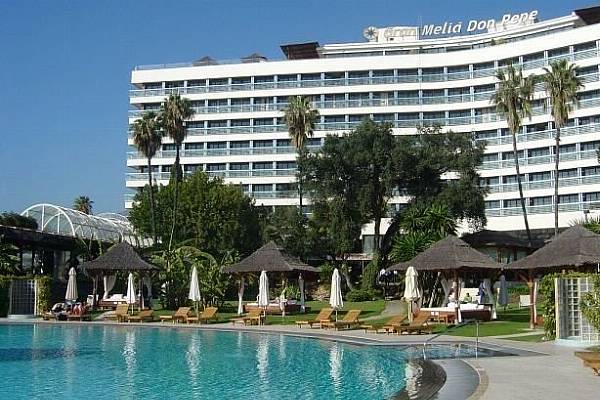Hotels in Spain increased their rates by 36% in April from a year ago, charging €96.3 per night on average around the Easter holidays that marked a long-awaited rebound of tourism after the COVID-19 pandemic, official data has shown.
Details
The average rate was also 15% higher than in April 2019, before the pandemic struck in early 2020, bringing global travel to a near halt and forcing the few hotels that remained open to significantly lower their rates.
The National Statistics Institute on Tuesday said rooms in five-star hotels cost 23% more than a year ago, averaging €226.5 per night. Ironically, staying in cheaper, two-star hotels was now 40% more expensive, with rates at €66.
Hoteliers have been able to adjust their rates and cover the inflation and energy price rises thanks to a significant increase in foreign tourism, mostly from Britain and Germany, as the European countries eased or lifted travel restrictions.
In March and April this year, the number of clients staying in Spanish hotels rose more than five times from a year ago, and 40% of them were residents in the country, INE added.
Tourist arrivals in April were at 86% of pre-pandemic 2019 levels and some popular islands hosted the same number of holidaymakers as they did before the pandemic, according to official figures.
Spanish hotel chain Melia said last week that during the Easter week it recorded a global increase of 18% in its room rates. The Mallorca-based group expects to have better sales at its resort hotels in 2022 than in 2019.
Spain's Melia Hotels Sees A Full Recovery In Its Resorts In 2022
The above news followed news that Spain's Melia Hotels MEL.MC has said that its occupancy rates and revenue should recover to pre-pandemic levels in its resort hotels this year, amid a strong rebound in tourism after the lifting of most COVID-19 restrictions in Europe and America.
The Mallorca-based group expects to have better sales in 2022 than in 2019 in its resort hotels, helped by holidaymakers' demand for roomier accommodation that boosts the average price of a stay. Meanwhile its urban destinations are forecast to bring in 13% less than before the pandemic.
"In all sales channels we are above 2019 (at the moment...)but the evolution is more positive in holiday hotels," the Melia's chief executive, Gabriel Escarrer, told a news conference.
"Spain is one of the destinations that benefits most, as clients perceive that it is a safe haven," Escarrer said, noting that the country is far away from the Ukraine conflict.
The hotel chain group reported last week that its first-quarter revenues more than tripled to €271 million from a year ago, but still posted a loss of €59.3 million, mainly due to the impact of cancellations caused by the Omicron variant earlier in the year.
Bookings have grown by double digits week-on-week since mid-February and the Easter holiday marked the way for a better rebound, the company told Reuters.
The company recorded a global price increase of 18% in its room tariffs during the Easter week.
The impact of the conflict in Ukraine has not strongly affected the movement of travellers and, according to the company, will not overshadow the expected recovery from the pandemic.
Last month, tourist arrivals in Spain were at 86% of 2019 levels, while its islands popular with holidaymakers hosted the same number of tourists as they did before the pandemic, thanks to the return of travellers from key markets Britain and Germany, the government said on Wednesday 18 May.
News by Reuters, edited by Hospitality Ireland. Click subscribe to sign up for the Hospitality Ireland print edition.









